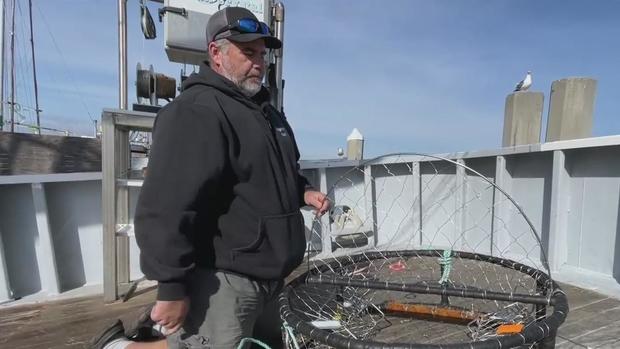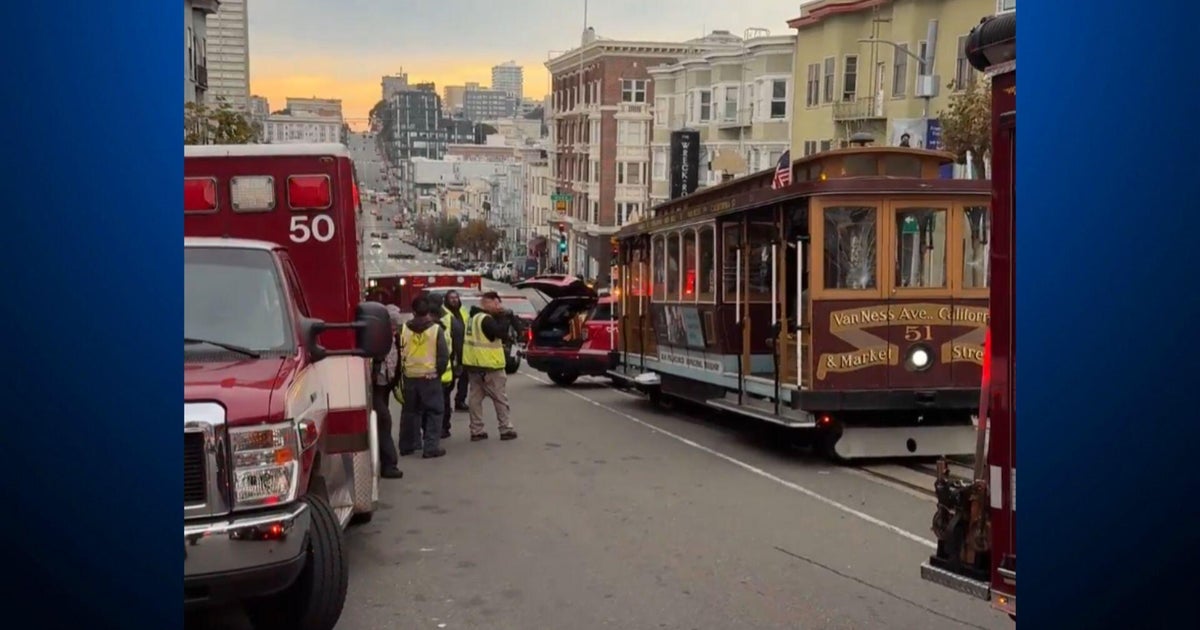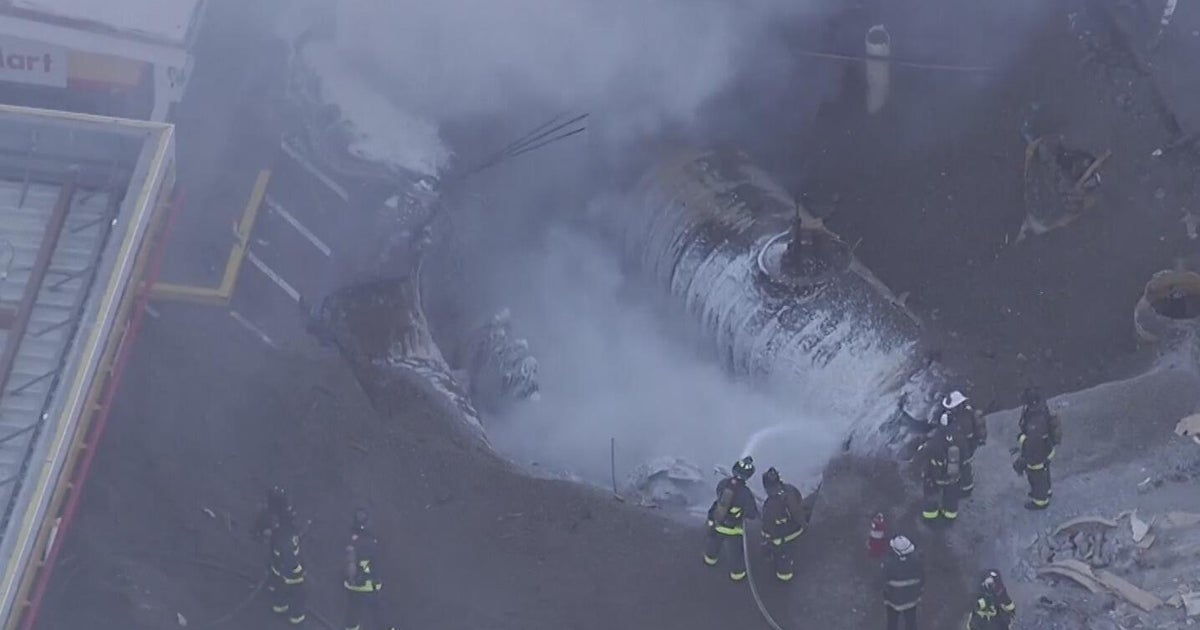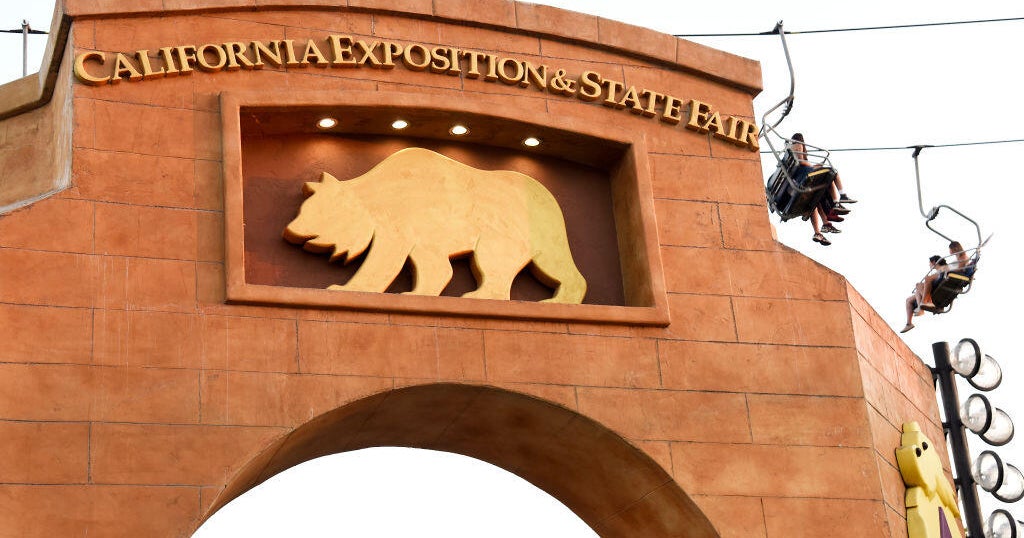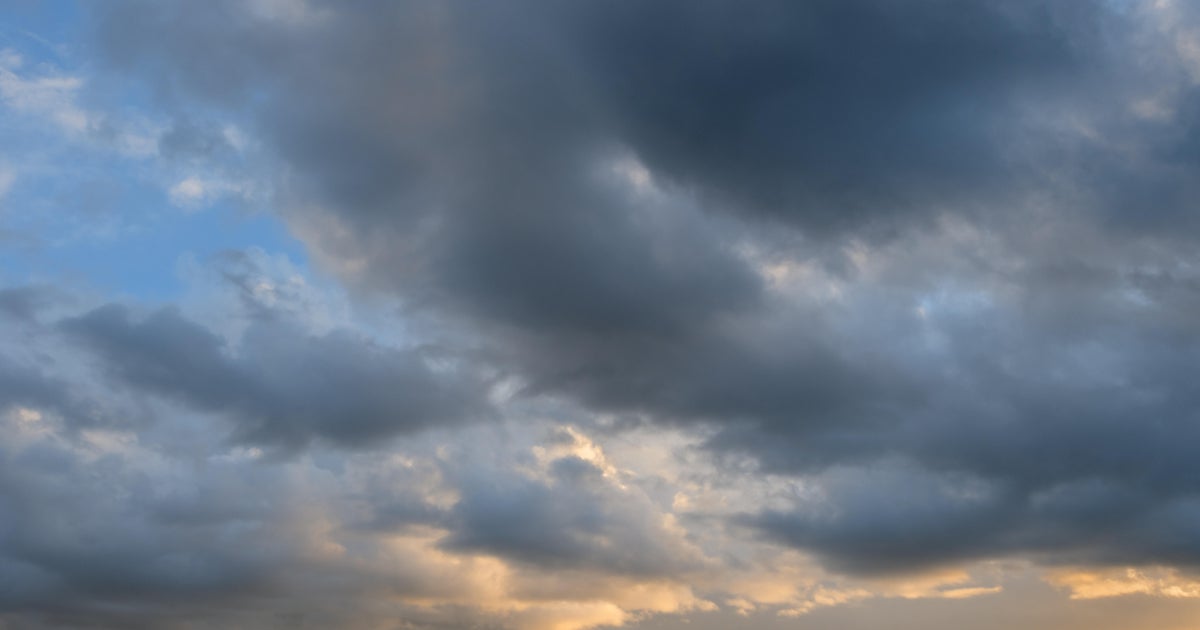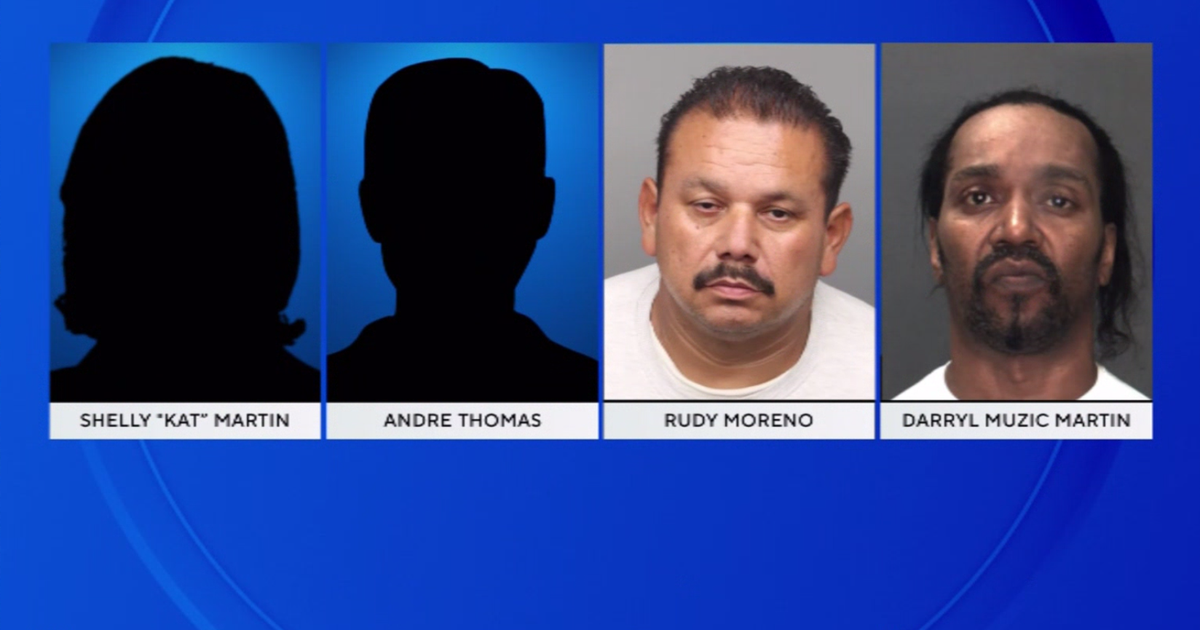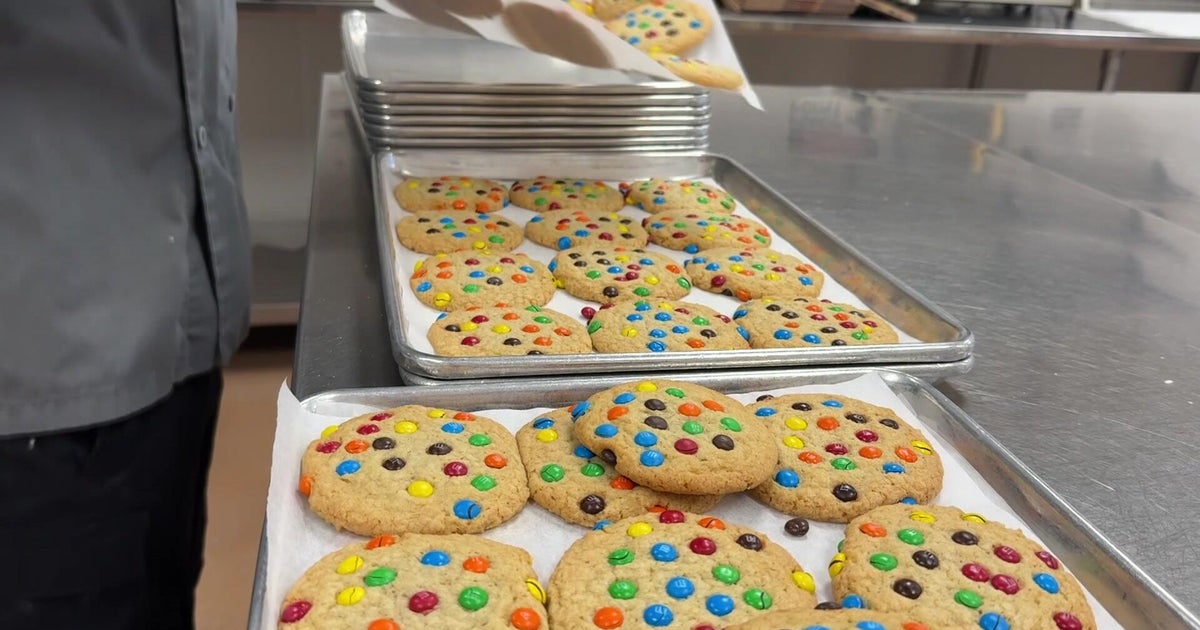San Francisco crab fisherman proposes radical change from traditional methods
SAN FRANCISCO -- A local crab fisherman has come up with a simple idea that could allow crab pots to remain at sea while keeping migrating whales safe.
Crab fisherman who also fish for salmon during the year are facing double trouble.
Several fishing industry representatives say the upcoming salmon fishing season will likely be closed the entire year because of low counts. A decision is expected within weeks.
Now the crab season scheduled to end in June could be cut short.
However, there is a proposal that could lengthen the next crab season that fishermen say addresses the ongoing issue of whale entanglements.
Crab fisherman Brand Little keeps a close eye on 450 crab pots that have been sitting at the bottom of the ocean. He believes modifying traditional traps by removing the lids could be good for commercial crabbers, consumers, and whales too.
"We're gonna take this pot and remove this panel," explained Little.
At first, the captain of the Pale Horse may sound nutty.
"These crab are free to come and go. We have to pull them up while they're feeding, which keeps the line out of the water overnight through storms and out-of-the-way whales," he said.
Leaving traps with hundreds of feet of rope in the ocean for days has resulted in whale entanglement and lengthy delays for commercial crabbing.
"As it comes up, all the crab will dump into the scoop area. That pot will come to the surface. We'll pick our 2-3-4-5 crab out of there, and we'll only have 50 of these versus 450," said Little.
Little's idea would minimize the time lines are submerged and incentivize crabbers to monitor their pots instead of dumping them and coming back days later.
"We're gonna get a fraction of the crab that we normally get, but we're going to do it early in the season where it has a lot of value we're getting the product," he said.
To make it happen, Little is hoping to get an Experimental Fishing Permit from state officials.
Little recently submitted his "scoop plan" to the California Department of Fish and Wildlife. He believes the green light is just down the road for those fighting to survive.
"It's not only the commercial fisherman. It's the infrastructure that is dying on the vine. Our supporting buyers, ice docks, fuel docks, they can't live on these 45-day crab seasons. It used to be a seven-month season," said Little.
Not all crabbers are on board. It may not make economic sense for the largest of vessels with more trap permits, deckhands and fuel tanks to make daily trips for a smaller catch.
But Little isn't letting that stop his game plan to change the status quo.
"It doesn't make sense to the consumer. It doesn't make sense to the fisherman. It doesn't make sense to the infrastructure, and it doesn't make sense to the whales," said Little.
His solution could ultimately lift the weight being carried by so many struggling in the industry.
California Fish and Wildlife spokesperson says Little's Experimental Fishing Permit proposal is one of two from fishing groups that's under consideration, but cannot provide more details of that second proposal yet.
The Center for Biological Diversity, which has been advocating for whales disagrees.
"While innovative fishing gear is needed for whale-safe fishing, new ways that still attach ropes to the seafloor does not solve the problem," a statement released by the Center said. "Allowing lines in the water while whales are present is a step in the wrong direction."
